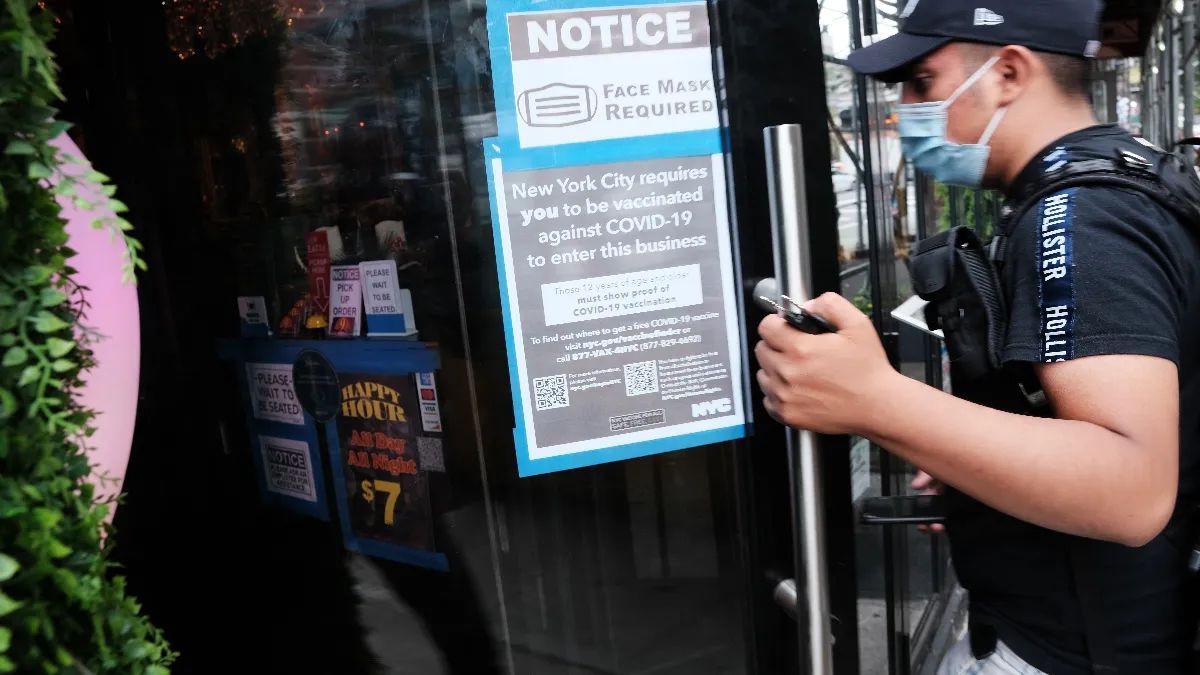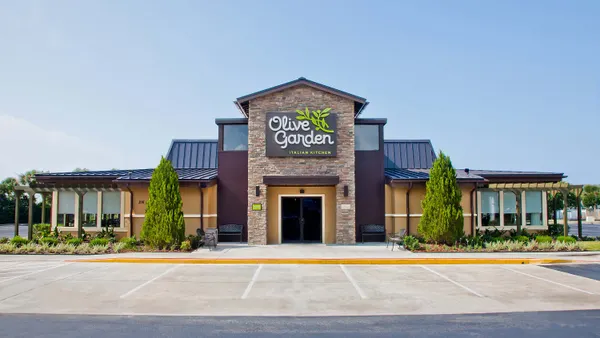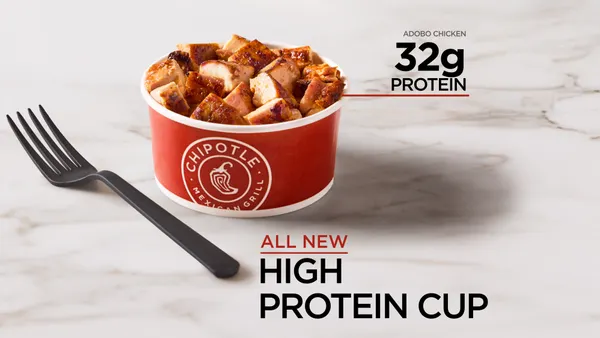Dive Brief:
- As coronavirus cases proliferate, six in 10 U.S. adults said they have changed their restaurant habits, according to a survey of 1,000 adults aged 18 and older conducted by the National Restaurant Association Research Group. Forty-one percent of respondents said they didn't change their behavior.
- Nineteen percent of consumers said they have completely stopped going to restaurants, while 9% said they have canceled existing plans to go out to a restaurant in the last few weeks. Thirty-seven percent said they have ordered takeout or delivery instead of going out, and 19% said they prefer to eat outside than inside.
- Baby boomers and Republicans were most likely not to change their restaurant behavior due to rising COVID-19 cases.This showcases the ongoing political and generational divide playing out at restaurants, making it more difficult for operators to appeal to all customers.
Dive Insight:
Consumer confidence in the safety of eating at restaurants is dwindling. Sixty-four percent of employees said they are more comfortable going to their workplace than going to a restaurant (36%), according to a survey from New Eagle Hill Consulting Research.
Increased regulations are having an impact on which restaurants diners patronize, as well. Thirty-two percent of NRA respondents said they would be less likely to patronize a restaurant with a mask requirement, and the same amount would be less likely to go to a restaurant with a proof of vaccine rule. Republicans, Gen Xers and rural residents were the most likely to not go to a restaurant with either a mask or vaccine requirement.
"For an industry that requires a 'full house' every evening to make a profit, this is a dangerous trend," Sean Kennedy, NRA's executive vice president of public affairs, said in a press release. "These changes indicate declining consumer confidence that will make it more difficult for most restaurant owners to maintain their delicate financial stability."
On the other hand, a bulk of diners don't appear to be impacted by these requirements. Twenty-five percent said mask mandates would push them to go to a restaurant, while 43% said masking up indoors wouldn't impact their decision to go to a restaurant. The same holds true for vaccine requirements, with 33% of adults saying these mandates would make them more likely to dine-in while another 35% said this rule wouldn’t impact their decision to dine out. Gen Z adults and Democrats were the most likely to say mask mandates would make them more likely to dine out at a restaurant. Gen Z adults, Democrats and individuals in higher-income households were the most apt to say a vaccine mandate would make it more likely for them to patronize a restaurant.
These results show how difficult it has become for restaurants to try to appeal to all customers amid COVID-19 concerns since one-third of customers will likely be upset one way or another. It also means that restaurants could lose one-third of their customers during a time when any amount of revenue could go a long way. Many operators have already received negative pushback online after adding proof of vaccine requirements, which doesn't bode well for operators in cities that have enacted vaccine mandates for indoor dining.
The NRA used this data to showcase the changing consumer trends in a letter it sent to Congress on Tuesday urging the legislative body to replenish the Restaurant Revitalization Fund, which currently has 177,000 applications worth over $43 billion in grants pending, according to the press release.
"The rise of coronavirus variants like delta threaten to push these restaurants closer to permanently closing their doors," Kennedy said. "The RRF has proven its effectiveness in every state, saving restaurants, workers, and the suppliers who depend on their business. The small gains that our industry has made toward financial security are in danger of being wiped out, dashing the hopes of communities, entrepreneurs, and consumers nationwide."











